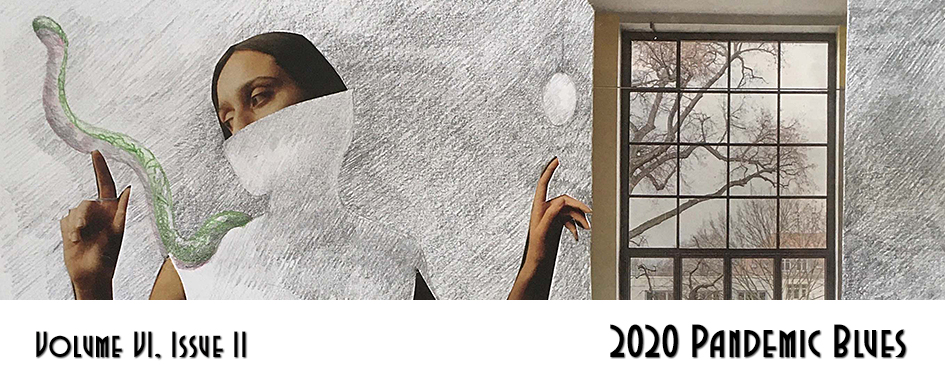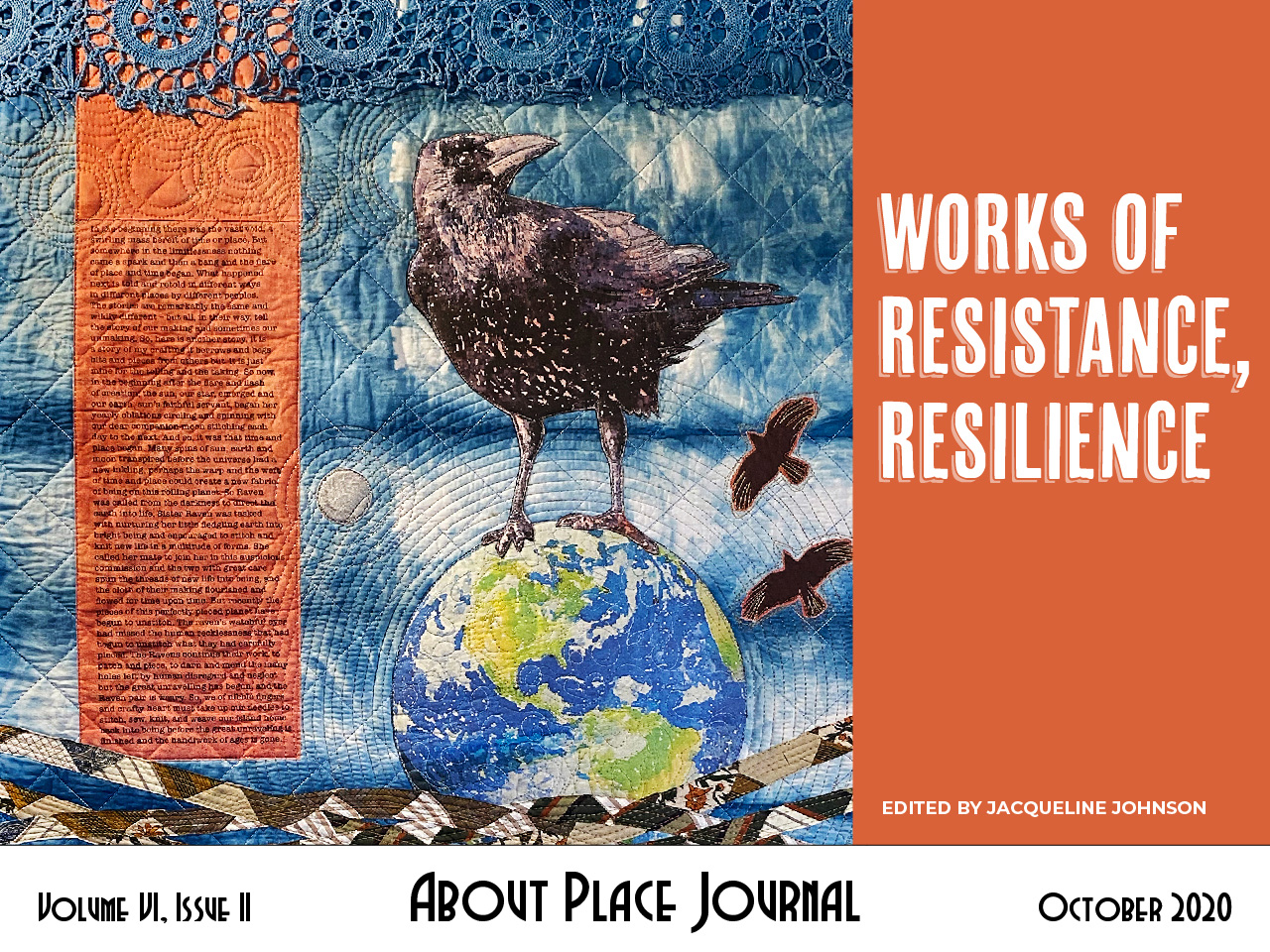“The apprehensions of the people were likewise strangely increased by the error of the times…”
Daniel Defoe, A Journal of the Plague Year
1.
This morning it’s quiet—no leaf blowers or Waste Management trucks. My family worries about my hearing going in and out like the tides. I am the moon. The only sound is a pinecone dropping on my patio with a notable thud. White pine trees around the perimeter of our unit needle each other just like our condo conversations.
I keep informed through a listserve where my neighbors swap handyman numbers and report robberies. A lot of those happened around Christmas. A woman in a nearby unit was held up at gunpoint and posted a video of falling to the ground and screaming. People responded with angry and sad emojis and inquired about what app she used to capture the footage. The police congratulated the woman on making it easier for them to track down the perpetrators. Otherwise, we stay out of each other’s way unless it’s at the mailbox where we pitch junk flyers into the wastebasket.
If it weren’t for the ravens, it would be quiet. They perch throughout the development on light posts and trees and sound like croaking frogs. When I first moved here, I thought the place had been overrun with amphibians, a ten plagues thing until I found out the truth. They speak to me.
The raven’s glossy feathers are luminously black. They eat ants and other insects, also animal poop. In doing so, they help to keep our condo walkways clear from any mordant piles that a resident may have forgotten to scoop up in plastic bags that are provided throughout the area. But sometimes the bags aren’t replaced, or a dog-owner may come downstairs unequipped. They have only the ravens to thank for protecting their good names, patrolling our walkways for rodents, omnivores that eat whatever they can.
About 300 feet outside my window is a firetrail that ascends along a stream to Merritt College. It has become a favorite for dog walkers who are allowed to escort their charges off leash. Long before I arrived, the area was home to the Ohlone/Costanoan peoples.
History’s eye is bloodshot.
2.
In the late 1880s, the discovery of iron pyrite along the canyon by Francis Marion “Borox” Smith almost launched a new gold rush, but it wasn’t the real thing. Still, pyrite had other uses. From the 1890s to the mid 1930s, pyrite was processed into sulfuric acid. Its value dropped after people discovered that the acid was a waste product from the refinement of petroleum.
There’s another caterpillar turn. Across the street from the condos, the site of the former Oak Knoll Naval Hospital is being converted into 918 homes. Deer, opossum, skunk, and coyote have already escaped to higher ground making way for an additional 72,000 square feet of retail space.
My neighbors are considering whether to stay or relocate. A lady I know from the parking lot has moved to Oregon. She knocked on my door and gave me her extra rolls of toilet paper. Another neighbor gave me his aloe plant because it was too large for him to move.
My family keeps saying that there’s something wrong and they mean with me.
I refuse to see doctors that line the halls of hospitals with sterling silver stethoscopes. Years ago they scheduled their private consultation beginning with an internal. I haven’t forgotten watching the way a door closed behind me.
I was there for observation. Everyone else was in the waiting room, waiting. They only knew what they saw, me in a sacrificial gown being escorted back to bed pulling an IV stand behind me. Nights were filled with beeps and hands holding out large white pills. Brush strokes by different hands.
3.
Here’s where it gets confusing. Bleu Radish lives downstairs. I call him that because he dyes his hair blue and because he’s shaped like a radish, also because he wears striped socks. Blue calls me Little Mama because he says I remind him of his mother. As far as being little, that part’s totally true. I wear a five double-A shoe. I have to buy them in the little girl’s section—Mary Jane’s with lots of daisies and rhinestones. Patent leather gets cracked in the rain.
Shoes or no, I can fly, something that Radish doesn’t want to accept. He says sure I can, and so can pigs, which I never thought was funny. I mean, if I saw a bunch of flying pigs I’d think any number of things, but I’d never laugh my head off. Anyway, Bleu Radish is strange. Sometimes he taps on my door and asks if I ever saw a dish run away with the spoon, and gives me a slice of cake that he can’t eat because he’s diabetic. I ask what happened to the rest of the cake and he says there is no rest. I say it’s probably sitting on your kitchen counter. He doesn’t say no either, but bends down and pulls up his striped socks.
Bleu’s been living here since the Loma Prieta firestorm burned down a bunch of big homes in the hills. He was one of the first to set up his stereo equipment, and told me that deer, skunks, and wild turkeys stayed as long as they could, listening to his music.
The place remained a rental property for twenty years. Afterwards, developers sold it, which is when I moved in since my landlady had replaced me with a distant relative. By that time, Bleu had saved up his pennies as a glass installer and had bought the upstairs unit. He didn’t care if I could fly. Bleu knew I was on SSI and had a steady income. He was more than my landlord; he was a friend.
It was during the pandemic when I first flew, sorted through my mask collection—a dowdy blue one, a jeweled creation from the last California firestorm, and a quilted mask with adjustable ear straps, and left on a morning while most people were working from home. The ravens were making house calls, wings black and luminous. I felt sad that this was happening, and that the federal government was spinning a cocoon of caterpillars until the next election turned them inside out, but right now it was about fresh air. Climbed the hillside, white yarrow and blue lupine on either side of me, the smell of anise and eucalyptus ventilated my nostrils. I felt like Julie Andrews in The Sound of Music and propelled myself upwards where I could see how my city was arrested below. I rose like proofed dough, my feet dangled. A raven winked.
4,
Today’s headlines are that Disney World is reopening in July with facemasks and temperature checks, no fireworks, parades or character photo-ops. Whether things are open up or not, I’m sheltering in place under God’s blue sky.
On the steps, Bleu Radish wiggles his bare toes. He says he’s fly fishing and can catch a meal for himself anytime he wants. I remove my sandals and try my luck. We sit there together with our feet dangling and watch Nettie who’s wearing tie-dye leggings, green and red. She lives in the unit near the pool, and is carrying a large plastic bag, not the kind you use to collect dog poop. Nettie is gathering cat fur from foxtails that grow outside the landscaped area. She says you just need to have a good eye, and swears that by the end of the month she’ll have about ten cat hair rugs to sell on Etsy, but warns that it takes patience. It’s not for everyone, she says, but thinks there’s enough demand to start up a new line of dog hair rugs. Nettie waves a long stick, which has a claw at the end. Bleu interrupts and wants to know exactly who buys her rugs. Nettie doesn’t answer, disappears outside the gate and starts poking at the grass.
I’m not catching flies. One lands on Bleu Radish’s foot and dances at the edge of his big toenail. The fly smells with its feet and has found a tasty meal. The whole thing feels creepy like Renfield eating flies in Dracula. I put my shoes back on.
People’s faces fit inside frames like shrinky-dinks. I am hoping we are bigger than that.


